 W
WField Marshal Sir Nigel Thomas Bagnall, was Chief of the General Staff, the professional head of the British Army, from 1985 to 1988. Early in his military career he saw action during the Palestine Emergency, the Malayan Emergency, the Cyprus Emergency and the Indonesia–Malaysia confrontation, and later in his career he provided advice to the British Government on the future role of Britain's nuclear weapons.
 W
WGeneral Geoffrey Kemp Bourne, Baron Bourne, was a British Army officer.
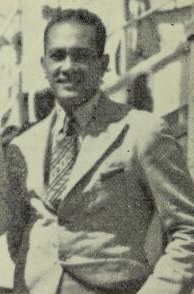 W
WRatu Sir Edward Tuivanuavou Tugi Cakobau was a Fijian chief, soldier, politician and cricketer. He was a member of the Fijian legislature from 1944 until his death, also serving as Minister for Commerce, Industry and Labour and Deputy Prime Minister. During the 1940s he made two appearances for the Fiji national cricket team.
 W
WJames Michael Calvert was a British soldier involved in special operations in Burma during the Second World War. He participated in both Chindit operations and was instrumental in popularizing the unorthodox ideas of General Orde Wingate. He frequently led attacks from the front, a practice that earned him the nickname amongst the men under his command of "Mad Mike."
 W
WField Marshal Sir Archibald James Halkett Cassels, was a senior British Army officer who served as Chief of the General Staff (CGS), the professional head of the British Army, from 1965 to 1968. As a young man he was a first-class cricket player, initially playing in India for the Europeans against the Hindus in the Lahore Tournament and going on to play for a Punjab Governor's XI against Northern India team and for a Viceroy's XI against the Roshanara Club. He later played for the British Army cricket team against the RAF at The Oval and then played for the Egyptian national side against HM Martineau's XI in Alexandria.
 W
WAlun Arthur Gwynne Jones, Baron Chalfont, was a British Army officer, a British politician and a historian.
 W
WField Marshal Sir John Lyon Chapple, is a retired British Army officer who served as Chief of the General Staff, the professional head of the British Army, from 1988 to 1992. Early in his military career he saw action during the Malayan Emergency and again during the Indonesia–Malaysia confrontation and later in his career he provided advice to the British Government during the Gulf War.
 W
WPeter Collinson was a British film director probably best remembered for directing The Italian Job (1969).
 W
WMajor General Sir Simon Christie Cooper, is a retired British Army officer who served as Major-General commanding the Household Division and General Officer Commanding London District and later Master of the Household to the Sovereign.
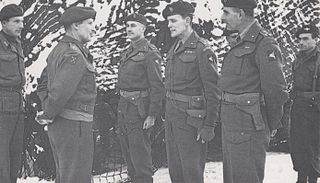 W
WLieutenant General Sir Napier Crookenden was a British Army General who reached high office in the 1960s.
 W
WLieutenant-Colonel John Davie was a British army officer who served on an anti-aircraft battery during the Siege of Malta and later won the Military Cross fighting communist insurgents during the Malayan Emergency.
 W
WMichael Treharne Davies was a British teacher and traditionalist Catholic writer of many books about the Catholic Church following the Second Vatican Council. From 1992 to 2004 he was the president of the international Traditionalist Catholic organisation Foederatio Internationalis Una Voce and was responsible for the unification of Una Voce America.
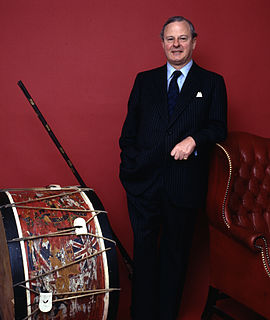 W
WJames George Alexander Bannerman Carnegie, 3rd Duke of Fife was a British landowner, farmer and peer. He was the grandson of Louise, Princess Royal, a daughter of King Edward VII and Queen Alexandra. As a female-line great-grandson of a British sovereign, he did not carry out royal or official duties or receive any funds from the Civil List. He was the second cousin of Queen Elizabeth II and Princess Margaret, Countess of Snowdon, and King Harald V of Norway. Through his maternal grandfather, he was also a descendant of King William IV and Dorothea Jordan.
 W
WMajor-General John Dutton "Johnny" Frost, was an airborne officer of the British Army best known for being the leader of the small group of British airborne troops that actually arrived at Arnhem bridge during the Battle of Arnhem in Operation Market Garden, in World War II. He was one of the first to join the newly formed Parachute Regiment and served with distinction in many wartime airborne operations, such as in North Africa and Sicily and Italy, until his injury and subsequent capture at Arnhem. He retired from the army in 1968 to become a beef cattle farmer in West Sussex.
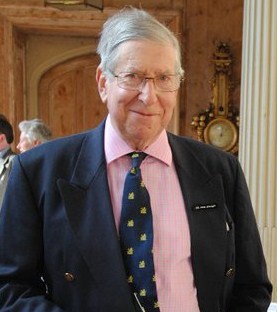 W
WMajor John Prendergast Gouriet was a British Army officer, company director and political activist. He was best known as a founder of the National Association for Freedom, and for pioneering the use of legal action to oppose actions of trade unions and campaigning groups which he believed interfered with personal liberty, during three years as the Association's director.
 W
WIan Reginald Edward Gow was a British Conservative politician and solicitor. He served as Member of Parliament (MP) for Eastbourne from 1974 until his assassination by the Provisional Irish Republican Army (IRA) in 1990, in which a bomb under his car exploded outside his home in East Sussex.
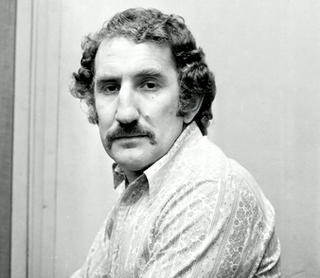 W
WPhilip Samuel Jacobson was a British journalist and war correspondent known for his reporting for The Sunday Times Insight team of the events of Bloody Sunday in Northern Ireland in 1972.
 W
WGuy Antony Jameson, FRS, FREng is Professor of Engineering in the Department of Aeronautics & Astronautics at Stanford University. Jameson is known for his pioneering work in the field of computational fluid dynamics. He has published more than 300 scientific papers in a wide range of areas including computational fluid dynamics, aerodynamics, and control theory.
 W
WDonald "Lofty" Large was a British soldier and author.
 W
WRambahadur Limbu, is a Nepalese Gurkha recipient of the Victoria Cross, the highest award for gallantry in the face of the enemy that can be awarded to British and Commonwealth forces. Rambahadur Limbu belongs to the Begha Clan of Limbu people of Nepal. Limbu was born in Chyangthapu village, Tehrathum, in East Nepal, and now lives in Damak. He is one of only five living recipients of the VC.
 W
WGeneral Sir Herbert John Mogg, was a senior British Army officer who also held the NATO position of Deputy Supreme Allied Commander Europe (DSACEUR) and was "in his time, probably the British army's most popular general".
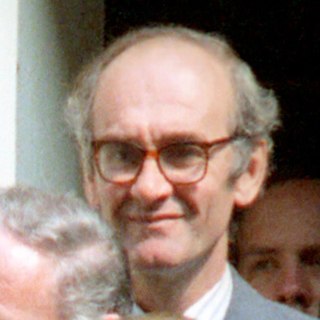 W
WSir John William Frederic Nott is a British former Conservative politician. Prominent in the late 1970s and early 1980s, he played a prominent role heavily as Secretary of State for Defence during the 1982 invasion of the Falkland Islands and subsequent Falklands War.
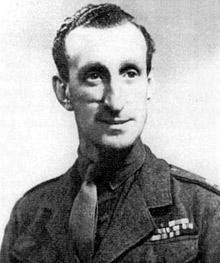 W
WColonel Richard Geoffrey Pine-Coffin, was an officer of the British Army who saw service during the Second World War. He commanded the 3rd Parachute Battalion in North Africa and the 7th Parachute Battalion in Normandy, Belgium, and Germany. His troops, amused by the unusual applicability of his family name, referred to him as "Wooden Box".
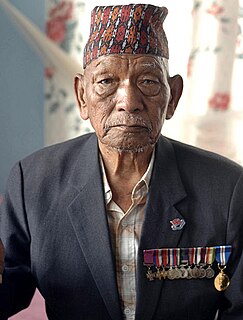 W
WTul Bahadur Pun was a Nepalese Gurkha recipient of the Victoria Cross, the highest award for gallantry in the face of the enemy that can be awarded to British and Commonwealth forces. He later achieved the rank of Honorary Lieutenant. In addition to the Victoria Cross, Pun was awarded 10 other medals, including the Burma Star.
 W
WLieutenant General Sir David William Scott-Barrett KBE MC was General Officer Commanding Scotland.
 W
WWilliam Speakman-Pitt, VC, known as Bill Speakman, was a British Army soldier and a recipient of the Victoria Cross, the highest award for gallantry in the face of the enemy that can be awarded to British and Commonwealth forces. He was the first person to receive an honour from Queen Elizabeth II.
 W
WGeneral Sir Hugh Charles Stockwell, was a senior British Army officer most remembered for commanding the Anglo-French ground forces during the Suez Crisis and his service as Deputy Supreme Allied Commander Europe of NATO from 1960 to 1964.
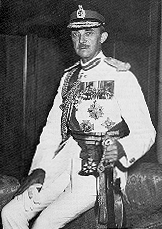 W
WField Marshal Sir Gerald Walter Robert Templer, was a senior British Army officer who fought in both the world wars. As Chief of the Imperial General Staff, the professional head of the British Army, from 1955–58, he was Prime Minister Anthony Eden's chief military adviser during the Suez Crisis. He is also credited as a founder of the United Kingdom's National Army Museum.
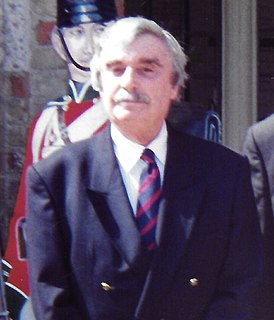 W
WLeslie Thomas, OBE was a Welsh author best known for his comic novel The Virgin Soldiers.
 W
WMajor General Robert Elliott "Roy" Urquhart, was a British Army officer who saw service during the Second World War and Malayan Emergency. He became prominent for his role as General Officer Commanding the 1st Airborne Division, which fought with great distinction, although suffering very severe casualties, in the Battle of Arnhem during Operation Market Garden in September 1944.
 W
WMajor John Edgar Grahame Vivian MC and Bar was a British Army officer who won the Military Cross in Burma in 1944 and again in Malaya in 1956. He later served as an officer in the army of the Sultan of Oman.